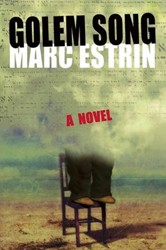The beloved story of Queen Esther is elegantly elaborated and complicated in Rebecca Kanner’s novel Esther. The king’s soldiers kidnap the young Jewish heroine, adding her to his harem. Esther and the virgins spend one year preparing for their night with the king and compete with one another for the title of Queen. Life in the harem is full of danger as the young women find it difficult to know whom to trust — particularly in the case of the most desired concubine, Halannah, who aims to make the girls impure before they arrive in the king’s bedchamber for the first time. Esther is forced to hide her Jewish identity and pretend not to recognize her cousin Mordechai, the king’s accountant, in the palace courtyard. Mordechai regrets Esther’s predicament and is only able to communicate with her through secret encounters that end up benefitting her and her people as a whole.
Esther strives to become queen not for riches and fame, but to help bring justice to the land, especially after hearing that certain enemies within the palace are plotting to harm the Jewish people as well as the king himself. From Ruti, Esther’s loyal servant in the palace, Esther learns how to win the king’s affection and is promptly announced as the new queen, replacing the notorious Vashti who refused to dance naked for the king’s soldiers. But Esther also has hidden affections for one of the soldiers and must be cautious of her conversations and movements at times so as not to seem suspicious. Her conflicting emotions of lust for the soldier and loyalty to the king occupy her thoughts. Soon, however, she learns that this soldier’s identity and his past are not what she had realized.
While queen, she cares for several of the harem girls, providing them respite and gifts at times. She is also painfully aware of the need to give birth to a son, the future king. As queen, Esther must prove to the soldiers and palace guards that she is worthy of being bowed down to and that she will make life better for the people.
The Book of Esther, read each year on Purim, is a timeless story of heroism and survival, and this adaptation of Esther’s story adds depth and colorful detail to this well-known Jewish tale.
Related Content:
- Reading List: Bible & Biblically Inspired Stories
- Matthew Baigell: We’re Living in a Golden Age of Jewish American Art and We Don’t Really Know It
- J. T. Waldman: My Pekar Years
Visiting Scribe: Rebecca Kanner
Jamie Wendt is the author of the poetry collection Laughing in Yiddish (Broadstone Books, 2025), which was a finalist for the 2022 Philip Levine Prize in Poetry. Her first book, Fruit of the Earth (Main Street Rag, 2018), won the 2019 National Federation of Press Women Book Award in Poetry. Her poems and essays have been published in various literary journals and anthologies, including Feminine Rising, Catamaran, Lilith, Jet Fuel Review, the Forward, Minyan Magazine, and others. She contributes book reviews to the Jewish Book Council. She won third prize in the 2024 Reuben Rose Poetry Competition and won second prize for the 2024 Holloway Free Verse Award through the Illinois State Poetry Society. Wendt holds an MFA in Creative Writing from the University of Nebraska Omaha. She lives in Chicago with her husband and two kids. Follow her online at https://jamie-wendt.com/ or on Instagram @jamiewendtpoet.





